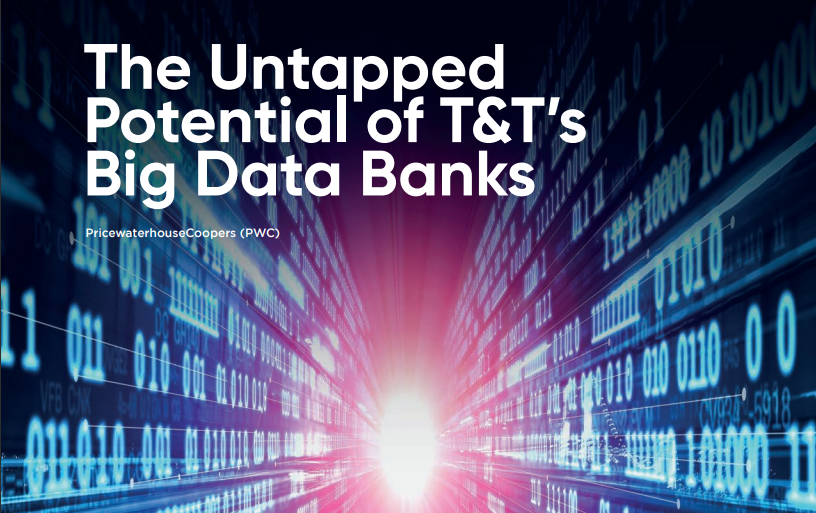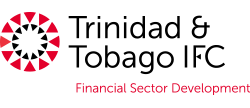
While Big Data has become mainstream there remain challenges relating to access and consumption of Big Data locally. Being able to overcome these Big Data challenges will allow for potential opportunities by digital financial services (DFS) and FinTechs to revolutionize the customer experience in T&T.
PricewaterhouseCoopers (PwC)
What is Big Data?
Big Data has been a boardroom buzzword for some time now. Despite its widespread use, however, it can still be wildly misunderstood. People sometimes think all they need are large datasets, but large datasets aren’t intrinsically valuable. Technology leaders know that Big Data alone has no inherent worth. Big Data’s true value lies in the information you can extract to answer a specific business question.
The term, “Big Data” is used to describe large, almost hard-to-manage volumes of data. This data can be both structured and unstructured, that inundate businesses on a daily basis. It’s not only the type or amount of data that’s important, it’s what organizations do with the data that matters. Big Data can be analyzed for insights that improve decisions and give confidence for making strategic business moves. Big Data refers to data that is so large, fast, or complex that it’s difficult or impossible to process using traditional methods. The act of accessing and storing large amounts of data for analytics has been around for a long time.
However, the concept of Big Data gained momentum in the early 2000s when industry analyst Doug Laney articulated the now-mainstream definition of Big Data as the three V’s of “Volume”, “Velocity” and “Variety”. This has evolved over the years to now encompass additional descriptors such as “Variability” and “Veracity”. One more definition we should consider is that of a databank. In database management and information architecture, a data bank or databank is a repository of information on one or more subjects. Quite simply it is analogous to a database.
Now, Trinidad and Tobago is by no means exempt from the successes and burdens of Big Data. As the Trinbagonian diaspora becomes more
ingrained in the usage of applications, websites and the broader Internet of Things (IOT) for everyday life such as content creation (e.g. social media), financial transactions (e.g. banking) and commerce (e.g. retail) the amount of data created is rapidly growing.
One report suggests that Trinidad and Tobago has approximately 1.09 million internet users as at January 2022, this indicates that the internet penetration is approximately 77.3 percent. Another useful statistic to infer how much data the country can generate is based on the number of social media users which is reported at 1.1 million users (approximately 78% of the population). This at a very broad level shows that the data being created by the population is massive. Another important factor to consider is that the Covid-19 pandemic has greatly expedited the movement of many services to online/digital platforms as well as those offered via e-commerce. This level of internet connectivity coupled with the citizens’ ability to purchase or transact online with companies, contributes to the exponential growth of data both within the private and public sectors.
The Opportunities Big Data Offer
Herein lies the potential opportunities for organizations within Trinidad & Tobago, including Digital Financial Services (DFS) and FinTech companies to harness this onslaught of data. A study conducted in 2020 suggested that there are approximately 110 million credit card transactions daily in the United States. Scaled for Trinidad and Tobago based on certain estimates, this is roughly equivalent to under half a million transactions daily. This is of course an estimate but let’s assume the volume of transactions is still quite large, organizations who collect this data have a massive opportunity to learn more about their consumer. What do they buy, where do they transact most often, what motivates them to purchase the way they do, what are their pain points and many more questions can be asked and using this very data to derive insight to provide answers. Companies that collect data on these digital transactions can leverage this data to address some key areas such as:
- Deliver better customer experience
- Stronger business intelligence to guide decision making
- More possibilities for new services, applications and capabilities
- Reduce development time and costs for new programs, services and overall organizational initiatives
- More security and control over your protected data
Consider the following scenario, as a FinTech or DFS. Your online service requires the user to create and login using a secure ID, that you as the entity can monitor. Your online service not only collects your users information but also what they do on your service. You use this information to analyze your users behavior over time and as such have found a massive opportunity to improve their experience while also increasing your usage penetration and even model what future uptake may look like. This very high level example gives a great perspective as to what the collection and usage of Big Data looks like. It also segues well into some of the major threats associated with Big Data.

The Threats Of Big Data
Like any technological endeavor, Big Data comes with security issues. For instance bad players can abuse Big Data and misuse the data collected which may include selling data to third party buyers. Additionally, if data falls into the wrong hands, Big Data can be used for phishing, scams, and to spread misinformation. Another major threat of Big Data is the quality of data collected.
Insights are only as good as the quality of the data they come from— bad, noisy, or ‘dirty’ data (or applying poor best practice) can lead to poor insights, which can be risky in the wrong situations. There are ethical issues—as a new field, the ethics of Big Data is still evolving. This is why some are pushing for a Data Science Oath and for ethical guidelines to be developed. This has led to mainstream development of data privacy acts (such as GDPR: General Data Protection Regulation and CCPA: California Consumer Privacy Act) to ensure security and safety of consumers that produce data. The battle between Big Data’s potential and its dangers is ongoing. However, identifying and acknowledging its potential risks goes a long way in resolving them.
The Future
While Big Data poses clear dangers we cannot ignore, the T&T market should not toss the baby out with the bathwater, so to speak. Big Data’s potential for positive change is huge. Luckily for us, it’s not a binary choice. We can address ethical challenges as they arise but there are other challenges we as a society may face including infrastructure, cost to implementation and adoption. Many companies have outdated systems that will require a major overhaul if they are to enter the realm of Big Data. In addition to this, there is also a labour and skill shortage of technocrats able to develop and implement Big Data solutions.
Companies with the T&T market will have to understand that there are challenges but this is the future. According to the PwC Global Consumer Insights Pulse Survey issued in June 2022, the patience consumers have shown at the beginning of the pandemic is now wearing thin. It found that consumer expectations are shifting as inflation, supply chain issues, ESG awareness and activism, and a possible recession affect availability, competition and values.
 However this isn’t all bad news, as there may be hidden opportunities especially using big data to solve problems. Looking at supply chain,
However this isn’t all bad news, as there may be hidden opportunities especially using big data to solve problems. Looking at supply chain,
logistics and inventory data, this can help companies better prepare their demand forecasting. As far as inflation is concerned, companies can better analyze data to create realistic pricing, relook employee salaries, and create better financial forecasts. The possibilities are endless but the investment must be made if we are to conquer the challenges presented. We need to reskill and upskill our employees to better understand the Big Data era and sensitize our consumers to how their data will be used to better serve them. This also requires greater collaboration between the private and public sector on the sharing of data to ensure a greater future for Trinidad and Tobago.
Unprecedented times are ahead but we as a nation can overcome these challenges if our collective and best efforts are put forth.
Read the full version of the FinTech Digest HERE or read our other articles, such as Leveraging Telecom Infrastructure in Advancing Financial Inclusion
